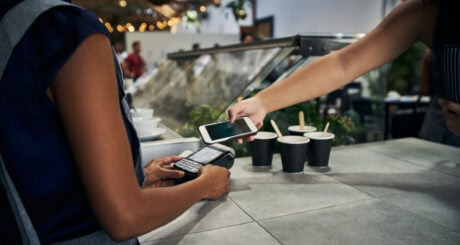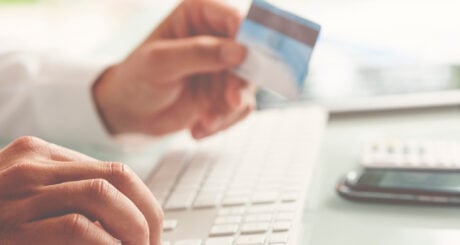Australian credit card use is becoming the default method of payment for many. In 2023, 82% of households shopped online[1] and the average adult has 1.3 credit cards to their name, according to data from the Reserve Bank. Credit and debit cards are the primary forms of payment, accounting for over 50% of online transactions.Users also have incentives such as reward points, cashbacks, discounts, and loyalty programs.
Online shopping has emerged as the new norm, but there are safety precautions that consumers need to be mindful of. This guide is for anyone who shops online, whether it’s just for food or for everything else.
Debit vs credit card for online shopping
People do their online shopping with credit cards for two main reasons: earning rewards points and purchase protections. For example, Westpac credit cards offer four months of Purchase Protection Insurance on eligible transactions. This covers purchases that are lost, stolen or damaged.
If you use a credit card, just be wary of how easy it is to spend. Available credit doesn’t mean it’s your money and if you want to use your money pay with a debit card.
Tips for paying online safely with a credit card
Follow these safety tips for shopping online with a credit card.
1. Check your balance before you buy
Before making a purchase, log into your account and check your credit card balance. Make sure you have sufficient funds and refer to the available balance, especially if there are pending transactions that take time to reflect in your account balance. This way you will avoid having to pay potential overlimit fees. Check you have enough to cover the transaction and any associated fees if it’s an international purchase.
2. Adopt security practices
Online credit card shopping safety starts with choosing reputable, secure websites. Only shop with brands and websites you know, rather than unknown third-party providers.
You should also:
- Keep your devices and computer secure with software updates and antivirus programs. When prompted to save your credit card details for next time, always say no.
- Create strong, unique passwords for each provider, instead of the one universal password. Install a password manager program that safely stores all your individual logins in a vault, which also scans for data breaches.
- Avoid using public WiFi such as in airports to make purchases online or log into your bank. If you need the internet, connect to your phone’s personal hotspot instead.
- Check if the provider’s website has been compromised or poorly reviewed before you make a purchase. Just run a quick Google search to find out. For example, there have been major data breaches at Ticketek, Medibank, and Optus.
- Be hypervigilant with emails, texts or calls. Phishing scams are rampant in the online economy. Scammers can gain access to your device from another location by tricking you into following a link or downloading software.
3. Enter your credit card details correctly
Once you’ve verified the website’s legitimacy, ensure you enter the correct details when paying online with a credit card. Keep your phone close by in case your bank needs to verify a transaction with you. Sometimes, the bank flags it as suspicious, even if it’s you. Banks can put temporary blocks on credit cards but they’re instantly lifted once you verify it was you.
4. Take post-purchase safety seriously
Save confirmation emails for everything you order online. Keep these organised so you can cross-check them with your monthly credit card statement. Get into the habit of reviewing your credit card account every week and your statement every month to spot unauthorised transactions.
You might not know your credit card has been compromised if you don’t scan your statement. It’s a common tactic for scammers to take small charges ($1 or less) to see if the cardholder notices before taking a larger sum of money.
5. Consider safe alternative payment methods
There are various indirect ways you will use your credit card that you need to be aware of, too. Some examples include using PayPal, Buy Now Pay Later (BNPL) websites, Apple Pay, and virtual credit cards.
With PayPal, you could unlink your credit card but keep your account (then re-add it for an upcoming transaction). The fewer places your credit card is stored online, the better.
If you use BNPL, opt for one of the bigger providers (such as AfterPay or Klarna) and read up on their fraud protection policies. Avoid using credit cards with any BNPL purchase because you’re doubling up on debt.
For ApplePay, every transaction must be authorised by your Face ID, Touch ID or device passcode. If your phone is lost or stolen, use Apple’s Find My service to lock your device and erase the data. Set this up as a proactive measure, especially if you use multiple Apple devices.
6. Maintain best practices to protect financial information
When possible, opt for multi-factor authentication. Always choose safety over convenience. Monitor your accounts, regularly update your passwords, talk to your bank about how to protect yourself, and don’t share your credit card details with anyone.
Frequently Asked Questions
Credit cards are a common payment method for online transactions and it’s worthwhile speaking with your bank about its safety protocols. For example, Westpac protects consumers with their Online Transaction Security Guarantee, which guarantees you won’t be liable for the amount of any online transaction made without your knowledge or consent, as long as they’re notified before the due date on the statement.
Yes, you can use a virtual credit card for online shopping. Virtual credit cards can also be added to your digital wallet (on your phone) via Apple Pay, Google Pay or Samsung Pay.
Log into your account and lock the card that’s been compromised. Then get in touch with your bank immediately. It’s important to know your rights as an online shopper. Online businesses have the same responsibilities to consumers as physical businesses – learn more at the ACCC website.
Article Sources
-
Global Data, “Payment cards continue to dominate e-commerce payments in Australia,” accessed July 26, 2024.
DIVE EVEN DEEPER

What Is A Digital Wallet? Should I Set One Up?
More Aussies are using their phones for payments. Here’s what you need to know about using a digital wallet.

Buy Now, Pay Later Cards in Australia
Credit card instalment options and ‘buy now, pay later’ cards in Australia are available through major issuers and banks. Here’s what you should know.

How to Spot and Avoid Credit Card Scams
Knowledge is power, so being able to spot the signs of credit card scams can help protect you and your money.

How To Use A Credit Card Responsibly
Learn how to use a credit card responsibly and follow best practices to leverage the full range of benefits.

